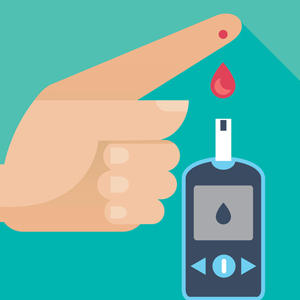
When Sipho Dlamini (33) was diagnosed with diabetes at the age of 17, he was still in high school and came in for a lot of discrimination and family pressure.
“But that has never stopped me from living a happy life,” he said on the eve of World Diabetes Day, hoping to encourage other sufferers.
“I remember when I first had the diabetes symptoms: dizziness, tiredness, headaches and blurry vision. I was immediately rushed to our family doctor,” he remembered.
At the clinic the doctor asked for a urine sample and checked Dlamini’s blood sugar with a finger prick test.
“They found out that the level of my sugar was too high and few blood tests were done.”
Dlamini was diagnosed with diabetes and put on treatment. As the only son in his family, those close to him struggled to accept the news.
They did not understand the chronic condition and suggested that he rather use traditional medicine.
“The problem with our black communities is the lack of information about chronic illness. Because of that, when someone is diagnosed with diabetes, people will just believe it was caused by witchcraft. Some say it’s a white condition, and just because you lose so much weight they will say you have AIDS.”
But over the years Dlamini’s family has learnt about the condition, and have come to understand that he needs treatment. They have also come to understand that his grandmother died of diabetes. And then in 2014 his father had to have both legs amputated due to diabetes.
Managing diabetes
According to nurse Gugu Vilakazi, there are two main types of diabetes. Type 1 diabetes and occurs when the body does not make insulin which is used to burn sugar in the body.
The onset is generally before the age of 30 and some children are even diagnosed with it. Type 2 diabetes is when the body manufactures some insulin, but may not be enough or the cells may not be able to absorb the insulin. This type usually occurs after the age of 40.
According to the International Diabetes Federation, South Africa is one of the 32 countries in the IDF African region. Globally 425 million people have diabetes with more than 16 million of them being in Africa.
Vilakazi warned that if diabetes goes undiagnosed or untreated, sufferers risk kidney and heart damage, affected vision, sores and wounds that don’t heal and can potentially lead to amputations and a coma.
“It is advisable to immediately go to the clinic to seek professional help if you suffer from dizziness, severe thirst, tiredness, headaches, a loss of feeling in the feet, unexplained hunger or blurry vision,” she said.
Vilakazi said while nothing can prevent Type 1 diabetes, steps can be taken to prevent getting Type 2 diabetes. These include following a healthy diet, stopping smoking, exercising three to four times a week and going for regular check-ups.
“Diabetes will never go away, but it can be managed so that the patients can stay healthy,” Vilakazi said.
She said diabetics should take their medicine as prescribed by the doctor to keep their sugar levels correct. And exercise was important for helping the body use insulin better.
– Health-e News.




 Publications
Publications
 Partners
Partners











